Rural Versus Urban Prepping: How to Prepare
Today, we are going to talk about Rural Versus Urban Prepping. Prepping will look slightly different, depending on whether you are an urban or rural dweller. Depending on where you live, you must make significant decisions now to ensure you are prepared for a disaster.
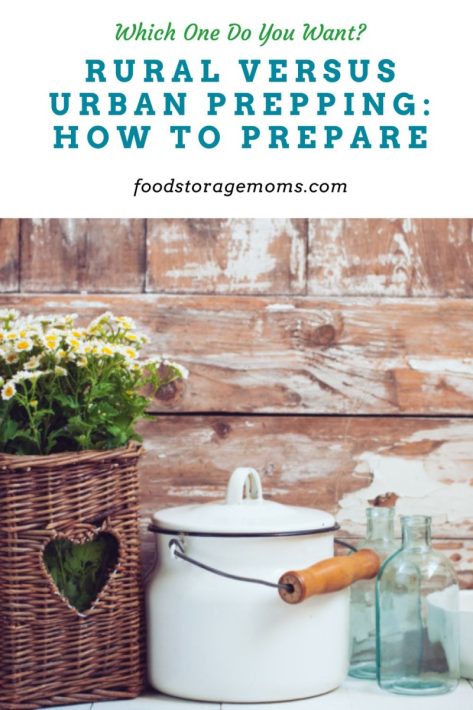
What is Urban Living?
If you live in an urban area, you live in or near a city. So, if you live in a town, city, or even the suburbs, you live in an urban area. A metropolitan/urban area is usually very developed with stores, gas stations, bars, shops, etc.
What is Rural Living?
If you live in a rural area, you live in the country. This means there is a low population density and undeveloped land and farmland.
Rural Versus Urban Prepping
Living in the city and the country has advantages and disadvantages. I would love to live off-grid, but it isn’t always feasible. So, I will break down the pros and cons of each for you.
Rural Living
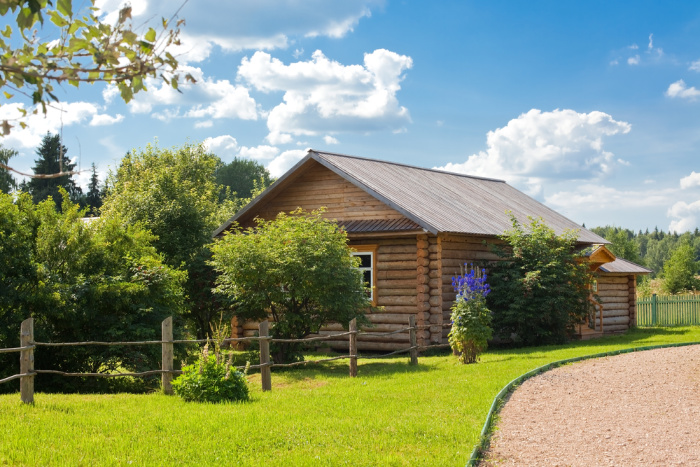
Rural living has pros and cons, but many preppers prefer to live in the country. Here are just a few of the pros and cons of living in the country:
Pros
- You are further from the city and away from dangers such as crime, congestion, noise, pollution, etc.
- In a rural area, you can depend on natural resources such as trees, rivers, lakes, and wildlife.
- You may be more adept at knowing and using survival skills like fishing, hunting, canning, fire-starting, farming, and growing a survival garden.
- The masses don’t see you. Fewer people typically means fewer problems.
Cons
- Laws may become nearly nonexistent in remote areas first, so there may be more dangers than you realize.
- If you live in the open, not in the woods, you may not have places to go if dangerous situations come up.
- Rural preppers are usually off on their own, which means you have to be careful who you can trust. Just because there are fewer people doesn’t mean they are trustworthy.
Urban Living
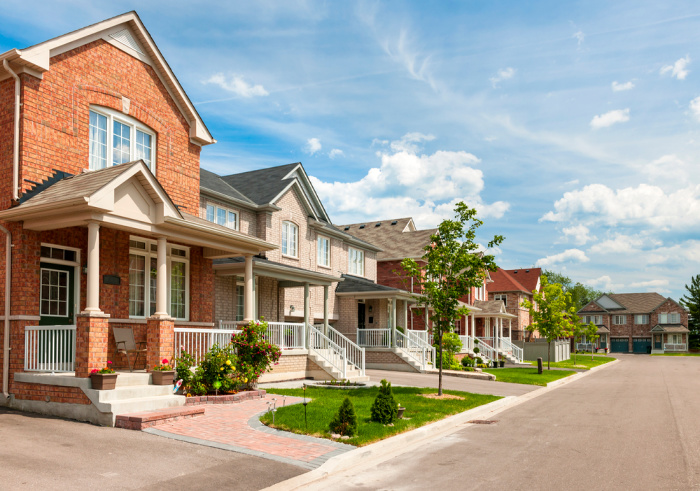
As with rural living, urban living has its pros and cons. Although many preppers prefer to live in the country, it isn’t always possible. Here are just a few pros and cons of living in the city:
Pros
- You have access to constant communication about what’s going on. News travels faster in the city. This gives you the advantage to react quickly.
- There are more places to hide, duck under, and cover. This is good if you are attempting to escape an attacker.
- If you want to travel a reasonably short distance, you can still engage in sporting activities like fishing and hunting.
Cons
- You must understand that when a disaster hits, you will have to depend on the resources you have saved up, such as food and water.
- Many urbanities depend more on frequent trips to the grocery store, which will likely be wiped clean in a crisis. Therefore, you will need to double your stocks.
- There are a lot of people. This means you not only have competition for groceries and goods, but gangs can band together to take over the resources of the weak. More people equals more threats.
- Increased risk of sickness and disease with more people.
Rural Versus Urban Prepping: How to Prepare
As you can tell, there are differences between living in the country and the city. This means you have to be able to prepare yourself for the different situations where you live. We have to be able to think of our threats on the one hand and the benefits on the other. That said, here is your guide to Rural Versus Urban Prepping.
Rural Prepping
When it comes to prepping in rural areas, you have a lot more options. You can still head to the grocery store in the city closest to you, but you can also be self-reliant. Here are some ways I would recommend you prep if you are in the country:
Store Water
Whether you live in the country or the city, your priority is having fresh drinking water. You can live for a few weeks without food but only for three days without water. If you live near a water source, check out my guide on the Best Ways to Purify Water. However, you also want to have water stocked up to drink without worry. Check out my guide on How to Store Water for Drinking and Cooking.
Food
Food is the second thing you must worry about in any disaster scenario. You have several options regarding the country’s food supply, and you can choose all of them!
- Stock up on non-perishables from your closest grocery store.
- Plant a garden and grow your fruits and vegetables.
- Invest in livestock. Raise and butcher your livestock for meat. You could also have a cow for milk and chickens for eggs.
If you have livestock you can raise and eat, you will want to stock up on food. Have at least a six-month supply of food for the animals.
Learn to preserve the food you grow in your garden by canning, freezing, or dehydrating it. If you aren’t sure how to can food, please get the book “Complete Guide to Home Canning.”
Related: Survival Food and Emergency Food Storage
Hunting/Fishing Equipment
Living off-grid, you can use your land to hunt and fish. Remember that others will have the same idea as communities progress and get more congested. You may want to think about stocking your freezer now. Be sure to stock up on a bow and arrow, shotguns (ammo), knives, and fishing poles to get your food.
Related: How to Make Heat in a Can for Hunting or Survival
Home Protection
In the country, you aren’t just protecting your house and its belongings; you are protecting your whole property. Most preppers who live in the country will have livestock and a garden they need to protect as well.
You may think living in the country means nobody will bother you, but you do have some real threats you have to think about:
- Crime and violence can go undetected in rural areas.
- Rural areas lack the benefit of neighborhood watch, which can deter crime.
- You live in large open expanses.
- Crime is less likely to occur, but the odds of deterring intruders is reduced. This is because you have a much larger space to cover.
Protect what you have by:
- Spread out your security equipment. In addition to having security equipment throughout your grounds, you will want it to be able to run your household and possibly the outbuildings with a backup generator as well.
- Have sensors. You will want to have a motion sensor that triggers floodlights, a siren, or maybe an alarm to notify you of an intruder. Having a dog can also help.
- You are using electric fencing around your livestock. This helps prevent people and predators from accessing your livestock.
Other Things to Stock
Here is a list of other things you want to stock up on. They may not be things you could live without, but you may not have the best hygiene or not feel your best without them.
- 35 OTC Medications
- Antibiotics
- Any medications you currently take
- First Aid Kit Buckets
- Toilet paper
- Shampoo
- Soap/body wash
- Toilet paper
- Deodorant
- Toothpaste/toothbrushes
- Bleach
- Household cleaners
- Hand sanitizer
- Dish soap
- Laundry detergent
- Blankets
- Generator
- First Aid kit for livestock
- Knife sharpeners
- Water filtration systems
- Seeds
- Duct Tape
Urban Prepping
Living in the city means you have to be on top of your game, know your threats, and prepare with a purpose.
Do You Bug In or Out?
Many people living in urban areas may wish to bug out during a major disaster. You may bug in in smaller scenarios. Your preps may determine whether you will bug out or bug in during a dangerous scenario. Here’s how you know when to bug in or bug out:
When it’s time to bug out:
- A natural disaster is imminent, which means your location has the potential to be unsafe. It could be a flood, wildfire, hurricane, chemical spill, or other significant event.
- If staying put is more dangerous. If your home is right in the middle of where disasters or emergencies will happen the worst, it’s time to get out.
- The transportation system is down. If all transportation is down, the shelves will be empty in days, and people will begin to loot.
- Your stockpile is almost gone. You may have planned and prepped, but if the event lasts longer than expected, you may need to bug out.
If you plan to bug out, you will need several ways out of the city. Highways will probably be flooded with panicking people. Ray’s Book is a Treasure: “Buggin In.” Please note, I will only “Bug Out” if we have an earthquake and my house is sucked into the earth.
When it’s time to bug in:
- Going outside is more dangerous than bugging out. People who aren’t prepared like you will do whatever they can to survive. Sometimes, being locked inside gives you the best chance of survival.
- You have nowhere to go. If you don’t have a safe destination within a reasonable distance, stay where you are and prepare to bug in.
- It’s too suspicious to bug out. Being on the road during the worst of it can make you an easy target.
Related: 15 Reasons Why You Do Not Want to Bug Out
Make a plan for when you will bug in and when you will bug out. If you bug out, know where you will go and several routes to get there. You will also want to prepare your bug-out bags!
Have a Bug Out Bag
If you think you may bug out in certain circumstances and you have a place to go, you will need bug-out bags for every member of your family. Check out our Most Comprehensive Bug-Out Bag Checklist for more information on what to prep.
Store Water
Again, whether you live in the country or the city, your first priority is ensuring fresh drinking water. You can live a few weeks without food, but you can ONLY live 3-days without water. If you live near a water source, check out my guide on the Best Ways to Purify Water. However, you also want to have water stocked up so that you can drink. The American Red Cross recommends 1 gallon of water per person per day. Check out my guide on How to Store Water for Drinking and Cooking.
Food
When prepping food in the city, you are limited in the available options. In the country, you can be more self-sufficient for the most part, but in the city, you have to rely on your preps. This means food storage needs to be very calculated. If you live in the city, you will probably get most of your food from the grocery store.
In the country, you could have just a few months of food stored up and then live off the land to keep your supplies up. But in the city, it is hard to replenish on your own without being able to grow a garden or raise livestock.
So, I suggest having at least six months to a year of food and water stored up. Please check out my Survival Food and Emergency Food Storage guide for information on what to prep.
Home Protection
Another thing you have to think about when you live in the city is home protection. When you live in the city, you could have to deal with looters and other crimes as people panic. Check out How to Prepare Your House Against Looters to find out how to prepare your home against it and what you need if it happens. The information in that post is great to do, regardless if it’s looting or another crime.
Other Items You Will Need
In addition to what is mentioned above, you will want to make sure you have other necessary items on hand:
- 35 OTC Medications
- Antibiotics
- Other medication you currently take
- First Aid Kit Buckets
- Toilet paper
- Shampoo
- Soap/body wash
- Toilet paper
- Deodorant
- Toothpaste/toothbrushes
- Bleach
- Household cleaners
- Hand sanitizer
- Dish soap
- Laundry detergent
- Blankets
Related: Homemade Soap Recipes from Scratch
Final Word
I like the idea of living in the country, but many of us aren’t able to right now. When it comes to prepping, you also need to prep food and know how to cook it, so think about those things as well. Additionally, be sure to check out 30 Non-Food Survival Items to Stockpile.
Whether prepping in the city or the country, remember to stock the necessities and add in the extras. Did you find this guide on Rural Versus Urban Prepping informational? Let me know if I missed anything by using the comments section below! Please keep prepping; we must. May God bless this world, Linda
Copyright Images: Urban Suburban Homes Deposit photos_39363733_s-2019, Wooden Country House Deposit photos_3212682_s-2019, Cozy Home Rustic Depositphotos_47901521_s-2019

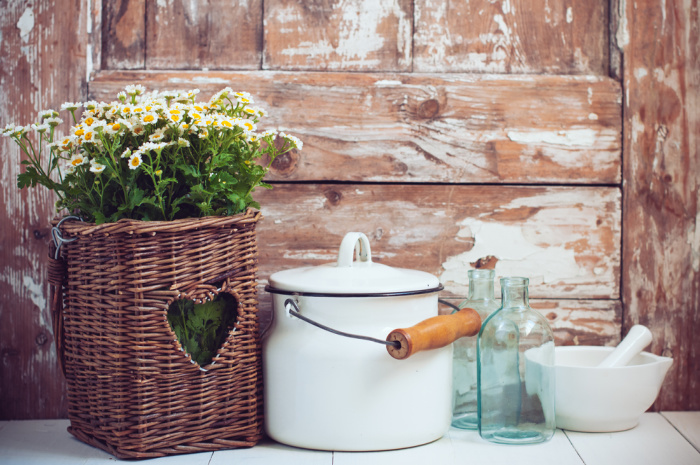

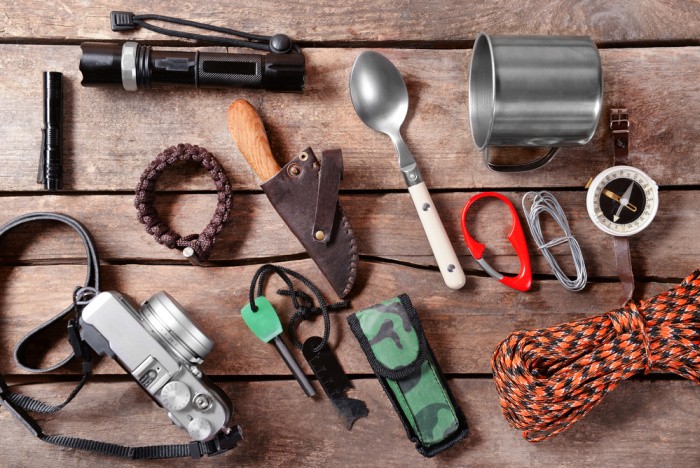
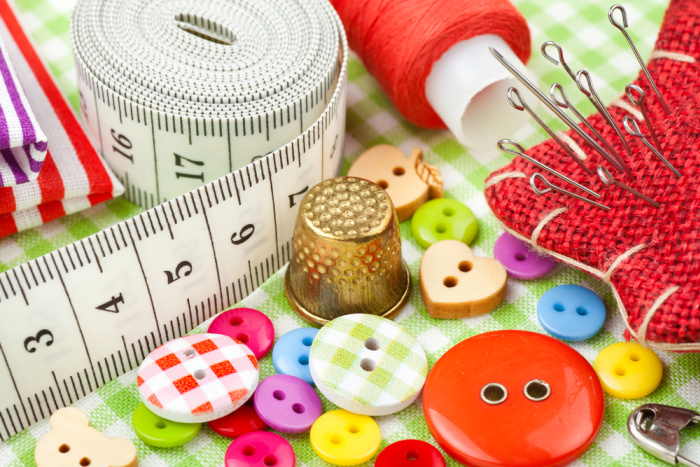

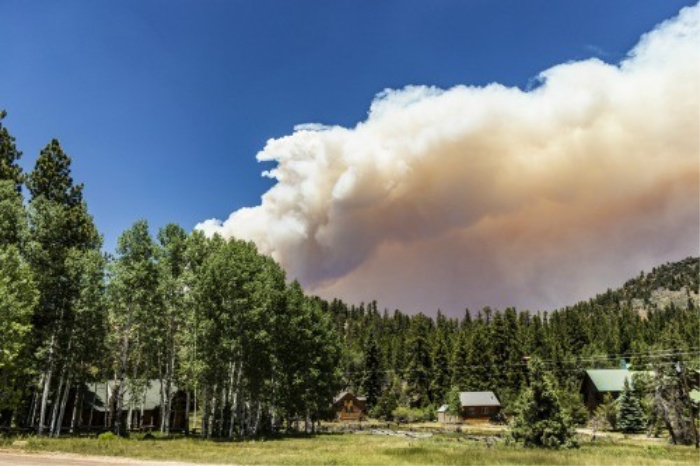
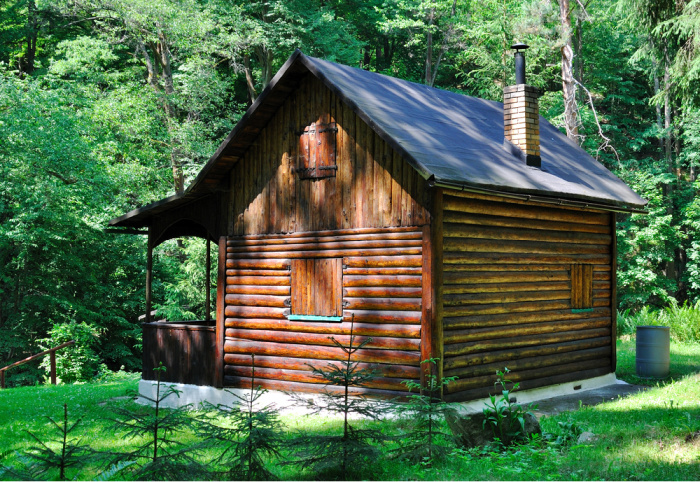














Good stuff. We’ve got some rough unpredictable times ahead of us near future I believe. I’m guessing the majority of readers here aren’t looking for trouble but that dont mean it won’t find ya.
For those that hadn’t started it’s not too late and for those doing keep on trucking. Small steps go a long ways.
I’ve got a group coming over today including a brand new one to preparedness.
We are making hard tack and putting it in Mylar with O2 absorbers. Making the amount we will we are gonna use the oven, propane smoker cabinet without the smoke and a propane bbq grill to cook/dry it.
Thing is when he leaves he’ll have that and some small bags of rice we picked up to teach him how to Mylar too. He’ll be able to eat a few days within the next 20 yrs should something happen. He will also leave with new skills.
We gain not only LTS food but time working as a team.
Hi Matt, this is so awesome to teach a new person to preparedness. I LOVE hearing this! Small steps do indeed go a long way. Great comment, Linda
Great info,. thank you. We need to remember this material so we are prepared when we need it.
Hi Cheryl, this is why I write, thank you for your kind words. Linda
Great article Linda!
We have been very satisfied with a predator deterrent called Nite Guard. This Is a small solar powered device that flashes a red light all night long in an irregular pattern. The units are attached to fences or buildings at various heights, with the flash being directed towards the most likely places predators would come from. The flashing pattern makes the predators feel they are being watched.
Ours have been in use over a year. They have worked well, literally flashing from twilight until full daylight, even when we had several days of rainy or fully overcast weather. I credit the NiteGuard units with helping keep our baby goats safe last year, as well as protecting the hen setting a clutch & the newly hatched chicks this year.
The NiteGuard solar powered units are available online. I know Jeffers Pet & Livestock Supply carry them. I will be ordering a few more to have as backups for whenever the present units wear out.
Hi BDN, I am going to look into getting one of these, thanks for the tip! I love it! Stay safe, Linda
We are surburban which has advantages over urban but not as many as being in a rural town. I don’t have a place for a garden, our backyard is 100% shade. We are trying tomatoes in the flower bed and herbs on our deck. I need to do some investigation into CSAs in our area as a source for fresh veggies.
Another lockdown like this past one wouldn’t be so bad and we are preparing for it. With that lockdown it was nice that we could still get fresh fruits and veggies. We also had full electric, water, gas and internet. Even garbage pick up was continued.
We are planning to replace what was used and pick a couple new things to try during the next lockdown. Unlike the last lockdown, I didn’t have time to fill the freezer and this time we will get that done. We are planning to cook all next weekend to get things done. With all 3 of us working together, we should get lots done.
Right now our state has declining numbers, so we should stay open long enough to replace supplies.
Hi Still Learning, great comment! I call this last lockdown or current lockdown I guess it’s a trial for those who have never been prepared and may never be. Thank goodness you were prepared. I really LOVE your statement about this ONE we had full electric, gas, internet and garbage pick up. We may not be so lucky next time. I LOVE your comment, Linda
Great post as always, Linda.
I live on the outskirts of a city – considered a moderately large “town” but the biggest issue I see with where I live is that it is the capital of my state! Therefore, we tend to have a number of large protests, not just currently but also in the past and certainly coming up in the future!
With that said, it is VERY important if one lives in a city to know where NOT to go! For example, I know during these times that I will not drive through downtown at all! The capital building, governor’s home, mayor’s home are all within walking distance to downtown. There have been current protests of BLM and COVID-19 with vandalism to the capital buildings and at least the mayor’s home. Needless to say, there are always going to be actions downtown that I just plain don’t want to get mixed up in!
You know, Linda, that I feel pretty well prepared for things that could happen right where I live. But, as I said in previous posts, I have some holes. Well, just last week I filled one of those holes with seeds! I have basic get from the store garden seeds and generally rely on starts from the nursery for my little balcony garden but I wanted LTS seeds. Finally found them on Amazon so I got heirloom garden seeds – 40+ varieties and both culinary and medicinal herbs – 20+ varieties for both (note: some herbs are in both culinary and medicinal so that is good). I cannot recall how much I paid – could look it up but it was not exorbitant by any stretch as my budget doesn’t allow for too expensive!!
As far as you lists on this post goes, I have all of the items. Something that I do believe you need to put on the list and something that I have in all my bags is plastic. I have the kind that you can tape over windows and doors for the purpose of cover if glass is broken out or if there is an issue with air quality.
Anyway, we all must continue to prep and use our common sense when it comes to what else we might need/want if we bug in. Bugging out is a whole different ball game and my bags/kits are prepped and ready to go in a moment’s notice. I will survive!
HI Leanne, a great reminder to ME about getting the plastic to cover my windows. I need that ASAP. Thank you! I KNOW you will survive. I’m so thankful I met you through my website. You have the knowledge to teach others and take care of yourself. I’m going to go online and look for the Heirloom seeds. I have a lot but sometimes you can never have too much! Linda
I’ve always thought that people can borrow from both areas of survival, urban and rural, to find ways to meet all their needs.
I feel as if living in the suburbs can be viable for a long term crisis if you have a decent amount of yard space, some open areas that the neighborhood might agree to use for gardening. Our house and the others on our street are zoned as agricultural while the later built homes are close together and have maybe a quarter acre of land if not less. But there are ponds and other small bodies of water and thus places to fish, which if they were managed well enough, could be a regular food source.
We have 3 and a half acres, share a pond with one neighbor forwards of us (We’re yards back from the street) and we have a well and a pump, but need a manual one as well just like the old western pumps which they still make today. We could plant food and have a chicken coop and some other animals even maybe goats or a couple of pigs. I imagine that this street and the people on it could be a resource for the others and we could organize something such as an exchange of protection, labor and so on. That would keep the whole neighborhood civil and friendly and cohesive. Chances are we might have an excess which we can’t even store. I raised birds and when they’re mating the numbers can get out of hand.
More restrictive suburban communities would have to work things out, probably over turning any home owner association policies that prevent surviving an emergency. My younger brother shares his backyard and thus can’t build anything or grow anything on it. Personally, I’d have told them they were nuts and looked elsewhere for a house. My brother did buy an emergency backup generator for hurricane season and window covers. I don’t know what they would do if they had to leave. So far he’s never asked us about coming here or raised the question of “What if everything goes bad”?
Hi Frank, I was just talking to my husband that we need to be prepared for riots. He is too relaxed for my way of thinking. He supports me on prepping but I think he is naive about how mean people will get when they have no food, or water. God bless us all, Linda
I assume that all of us here can figure out that the people on my street would be “juicy” targets for those thinking that larger homes and lots might yield people with the money to buy a lot of supplies or that with the extra land and at least 6 houses having ponds that we’d be good places to look for food and supplies. Even rioters may come looking for supplies since they were not smart enough to plan their invasions before they started them.
I feel we need to be as covert as possible, have enough guns and ammunition to repel thieves and I’d like to have dogs to patrol the yard and scare people away. If we produce enough to share then we can help others with seeds, starter plants, and even any excess food. Security wise, we need more eyes and hands.
We would need to organize everyone and bring them together lest we have constant fighting and thievery. Even though he’s not a full time prepper, my father was a Marine Colonel so he could apply his leadership skills and maybe get everyone to watch out for each other.
Hi Frank, great idea on organizing and applying leadership skills in your neighborhood. Lots to plan and be prepared for beforehand. Linda
We need a third word to describe small town dwellers. We live in a small town with an Air Force base nearby. There’s a very small “down town” & neighborhoods but no housing developments. Most people here grow some food & many keep a few chickens. There are ranches outside town limits & it’s possible to buy meat “on the hoof”. Part of me would love to be way out in the boonies like I used to live but realistically my age probably make that infeasible. I think this is probably best for me. There are people nearby to help each other, a small hospital, & in case of trouble a lot of handsome young men & women in uniforms who are very protective of “their” town & people. Good article, as usual.
Hi Linda, it sounds like you live in a perfect area, such great news! I love hearing this. Linda
I once lived about 30 miles west of Houston.Richmond was a suburb of Houston. My mother and I chose to bug In during a Hurricane. A large number of people tried to leave at the last minute. it created a massive traffic jam. Many of the people did not have full tanks of gas in their vehicles. Many of them ran out of gas.That made the traffic jam even worse. some people on motorcycles robbed the disabled vehicles. The Hurricane eventually made land fall 300 miles away from the Houston area.
Crime can hit you no matter where you live.But we must not become totally paranoid about it.
If you decide to bug out; Carefully plan your evacuation. Be sure to plan the route you will take to get to your destination. Have paper maps ready(in case your GPS goes out).
Hi Elbert, I don’t understand why people don’t keep their gas tanks full (unless unemployed, I get that). If you have 12 hours notice even that may not be enough to fill your tank. Just keep it above 3/4 and then you can top it off when evacuating if need be. Or you can make it to the next town and fill up. That is so sad that people attack or rob others. It really makes you wonder where they learned it. that’s probably a dumb statement. Are they lazy and don’t want to work to earn money or did they learn it from example. Plus, drugs can alter minds. So sad. Stay safe, Linda
We are in what is considered a third ring Suburb. No direct route into the city, but I wish we were further out. Our home is small, so maybe, we would not be an attractive target. We are preparing for what ever is coming our way.
Hi Chris, I’ve never heard a third ring Suburb, I Googled it, sounds wonderful! That may be where we live there are several cities north and south of the main Salt Lake City area. My sister lives in Las Vegas, Nevada and has some kind of special window covering that rolls down on every window to protect them. I can’t remember what they are called but they are like garage doors. I would feel claustrophobic but they give her peace so thats awesome. They bought the home from someone and the former owner was a super prepper. I mentioned keep in mind looters do not want our trinkets and decorations, we all know what they will look for. We talked about the hardcore stuff they want and she has none of it. But, the covers help her stress level. If someone wants to get into your house they can break a wall through your house but there would have to be something they really want, in my humble opinion. Let’s hope it never comes to that. I sleep well at night now. May God bless our President Elect from danger. Linda
Our thoughts and prayers are with President-elect Trump AND his family. We need so bad everything they have to offer our country. Please everyone stay safe and healthy.
Hi Chris, great comment, I totally agree. Linda